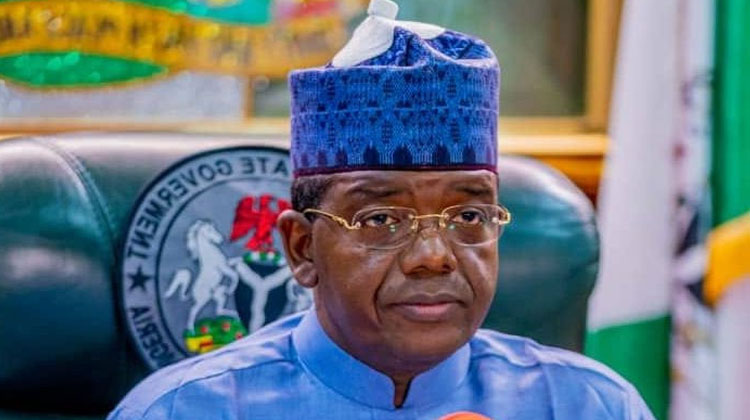The Looming Investigation: A Deep Dive into the Allegations Against Bello Matawalle
The political landscape in Nigeria is bracing for potential tremors as Bello Matawalle, the Minister of State for Defence, finds himself at the center of a burgeoning corruption scandal. The storm clouds gathered on Friday when a group of protestors, identifying themselves as the All Progressives Congress Young Leaders Alliance, marched to the headquarters of the Economic and Financial Crimes Commission (EFCC) in Abuja, armed with a petition demanding an investigation into Matawalle’s alleged financial improprieties during his tenure as governor of Zamfara State. This petition wasn’t the first; two previous submissions, lodged by the APC Akida Forum in May and September 2024, had already laid out a series of accusations against the former governor. The protestors’ primary concern was the perceived inaction of the EFCC, questioning why these earlier petitions hadn’t triggered a formal investigation.
The protest, led by Mohammed Ireji, underscored a growing unease within certain segments of the APC regarding the handling of corruption allegations against high-profile figures. Ireji’s statement highlighted the EFCC’s recent actions against other former governors and ministers, including Betta Edu, Yahaya Bello of Kogi State, and Darius Ishaku of Taraba State. These cases, according to the protestors, served as precedents, demonstrating the EFCC’s ability and willingness to pursue investigations against powerful individuals irrespective of their political affiliations. The group argued that if these individuals were not immune to scrutiny, neither should Matawalle. The protestors expressed confidence in the EFCC’s access to information regarding financial crimes across the country, implicitly questioning any potential obstruction or reluctance to investigate Matawalle’s case.
The heart of the matter lies in the allegations of corruption leveled against Matawalle. While the specific details of these allegations remain somewhat veiled pending a potential EFCC investigation, the protestors’ insistence on transparency suggests a significant level of concern regarding the misuse of public funds during Matawalle’s governorship. Their reference to multiple petitions indicates a sustained effort to bring these alleged misdeeds to light. The protestors’ move to escalate the matter publicly reflects a potential lack of faith in behind-the-scenes processes and a desire to exert public pressure on the EFCC to take action.
The EFCC’s response to the protest, delivered by Acting Director of Security Idowu Adedeji, was carefully measured. While acknowledging receipt of the petition and promising to forward it to the “appropriate quarters,” Adedeji stopped short of committing to a full-blown investigation. This cautious approach is typical of initial responses to such petitions, as the EFCC needs to assess the credibility and viability of the allegations before launching a formal inquiry. However, the protestors’ public demonstration and media attention surrounding the event have undoubtedly put the EFCC under the spotlight. The commission now faces the challenge of balancing its standard operating procedures with the growing public demand for accountability.
The implications of this pending investigation are multifaceted. For Matawalle, the allegations pose a significant threat to his reputation and political future. Even if the investigation ultimately clears him of wrongdoing, the lingering cloud of suspicion could damage his standing within the APC and potentially hinder his career progression. For the EFCC, the case represents a test of its resolve to tackle corruption at the highest levels of government. The commission’s handling of this politically sensitive matter will be closely scrutinized by both Nigerian citizens and international observers. Its actions will send a powerful message about its impartiality and effectiveness in combating corruption.
Finally, this incident serves as a microcosm of the ongoing struggle against corruption within Nigeria’s political system. The protestors’ actions highlight the importance of citizen engagement and public pressure in holding elected officials accountable. The outcome of this potential investigation will have ramifications beyond Matawalle’s individual case, impacting public perception of the government’s commitment to tackling corruption and potentially influencing future anti-corruption efforts. The unfolding events will undoubtedly be a significant development in Nigeria’s ongoing pursuit of transparency and good governance.


